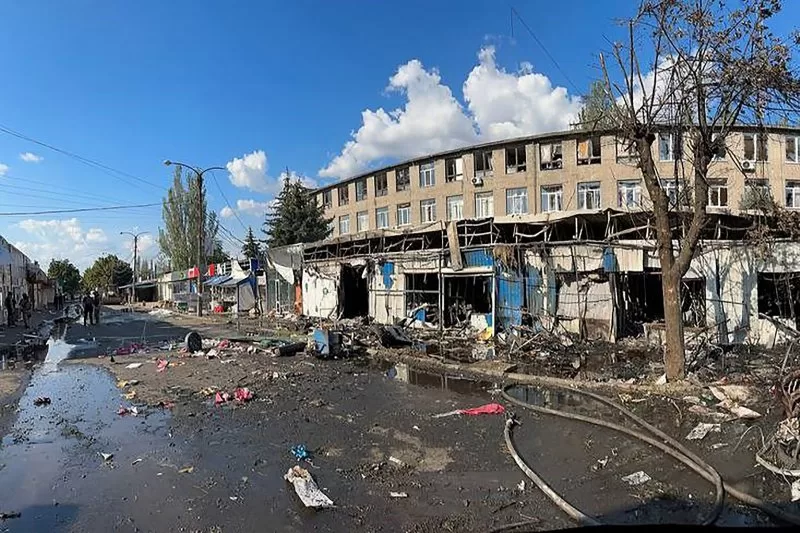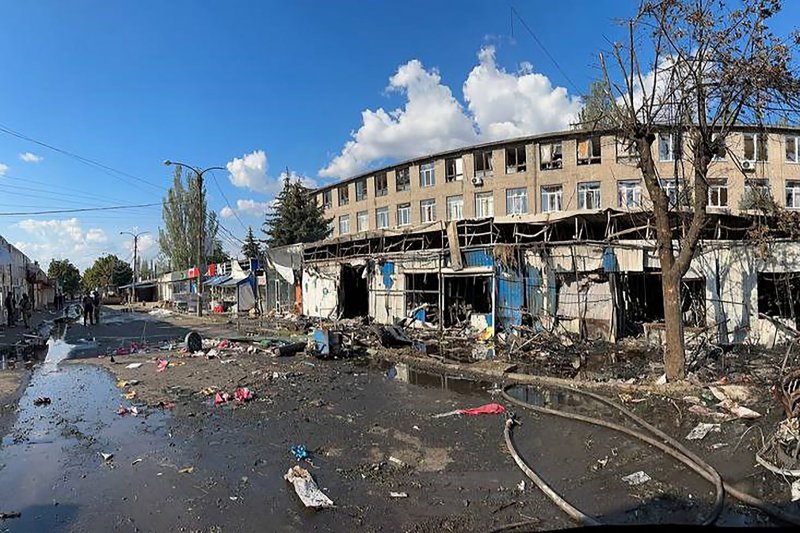1 of 3 | Ukrainian servicemen conduct work on the site of a destroyed market as a result of a Russian missile strike on September 6, 2023, in Kostiantynivka, Ukraine. File Photo by Ministry of Internal Affairs of Ukraine/ UPI |
License PhotoFeb. 11 (UPI) — SpaceX has deflected claims by Ukraine‘s Defense Intelligence Agency that Russia is using the company’s Starlink satellite network to determine the location of Ukrainian troops in the battle-weary Donetsk region, as Russia’s military invasion of Ukraine drags on well into its second year.
“If SpaceX obtains knowledge that a Starlink terminal is being used by a sanctioned or unauthorized party, we investigate the claim and take actions to deactivate the terminal if confirmed,” the company said in a statement.
Ukraine’s Defense Intelligence said it intercepted conversations indicating the Starlink terminals are being used to provide internet access to Russia’s 83rd Air Assault Brigade operating in the occupied Donetsk region.
SpaceX, which owns Starlink, says it does not do business of any kind with the Russian government or its military.
Starlink uses a network of satellites to provide broadband internet service, which it said will not work in Russia. The statement didn’t address whether it would work in occupied Ukraine.
Based on comments of military leaders, the service is critical in Ukrainian battlefield communications. “Absolutely all front lines are using them,” Kyrylo Budanov, head of the Main Ukrainian Intelligence Directorate said last year.
Despite SpadeX’s claims that it is not involved, speculation continues to run rampant following a biography of SpaceX founder Elon Musk by Walter Isaacson, an excerpt of which claims that Musk ordered engineers to switch off Starlink satellite communications near the Crimean border last year which would disrupt a Ukrainian surprise attack on the Russian naval fleet.
As Ukrainian submarine drones strapped with explosives approached the Russian fleet, they “lost connectivity and washed ashore harmlessly,” Isaacson writes.
Issacson wrote that had the attack been successful, Musk worried that Russia would respond with nuclear weapons, a suspicion which Isaacson said was bolstered by Musk’s conversations with senior Russian officials, according to Isaacson.

